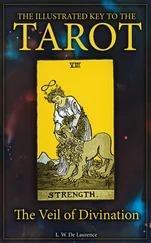But may not the world cry back at us and ask: "What better thing have you to show? What have you done or would do better than this if you had today the world rule? Paint with all riot of hateful colors the thin skin of European culture,—is it not better than any culture that arose in Africa or Asia?"
It is. Of this there is no doubt and never has been; but why is it better? Is it better because Europeans are better, nobler, greater, and more gifted than other folk? It is not. Europe has never produced and never will in our day bring forth a single human soul who cannot be matched and over-matched in every line of human endeavor by Asia and Africa. Run the gamut, if you will, and let us have the Europeans who in sober truth over-match Nefertari, Mohammed, Rameses and Askia, Confucius, Buddha, and Jesus Christ. If we could scan the calendar of thousands of lesser men, in like comparison, the result would be the same; but we cannot do this because of the deliberately educated ignorance of white schools by which they remember Napoleon and forget Sonni Ali.
The greatness of Europe has lain in the width of the stage on which she has played her part, the strength of the foundations on which she has builded, and a natural, human ability no whit greater (if as great) than that of other days and races. In other words, the deeper reasons for the triumph of European civilization lie quite outside and beyond Europe,—back in the universal struggles of all mankind.
Why, then, is Europe great? Because of the foundations which the mighty past have furnished her to build upon: the iron trade of ancient, black Africa, the religion and empire-building of yellow Asia, the art and science of the "dago" Mediterranean shore, east, south, and west, as well as north. And where she has builded securely upon this great past and learned from it she has gone forward to greater and more splendid human triumph; but where she has ignored this past and forgotten and sneered at it, she has shown the cloven hoof of poor, crucified humanity,—she has played, like other empires gone, the world fool!
If, then, European triumphs in culture have been greater, so, too, may her failures have been greater. How great a failure and a failure in what does the World War betoken? Was it national jealousy of the sort of the seventeenth century? But Europe has done more to break down national barriers than any preceding culture. Was it fear of the balance of power in Europe? Hardly, save in the half-Asiatic problems of the Balkans. What, then, does Hauptmann mean when he says: "Our jealous enemies forged an iron ring about our breasts and we knew our breasts had to expand,—that we had to split asunder this ring or else we had to cease breathing. But Germany will not cease to breathe and so it came to pass that the iron ring was forced apart."
Whither is this expansion? What is that breath of life, thought to be so indispensable to a great European nation? Manifestly it is expansion overseas; it is colonial aggrandizement which explains, and alone adequately explains, the World War. How many of us today fully realize the current theory of colonial expansion, of the relation of Europe which is white, to the world which is black and brown and yellow? Bluntly put, that theory is this: It is the duty of white Europe to divide up the darker world and administer it for Europe's good.
This Europe has largely done. The European world is using black and brown men for all the uses which men know. Slowly but surely white culture is evolving the theory that "darkies" are born beasts of burden for white folk. It were silly to think otherwise, cries the cultured world, with stronger and shriller accord. The supporting arguments grow and twist themselves in the mouths of merchant, scientist, soldier, traveler, writer, and missionary: Darker peoples are dark in mind as well as in body; of dark, uncertain, and imperfect descent; of frailer, cheaper stuff; they are cowards in the face of mausers and maxims; they have no feelings, aspirations, and loves; they are fools, illogical idiots,—"half-devil and half-child."
Such as they are civilization must, naturally, raise them, but soberly and in limited ways. They are not simply dark white men. They are not "men" in the sense that Europeans are men. To the very limited extent of their shallow capacities lift them to be useful to whites, to raise cotton, gather rubber, fetch ivory, dig diamonds,—and let them be paid what men think they are worth—white men who know them to be well-nigh worthless.
Such degrading of men by men is as old as mankind and the invention of no one race or people. Ever have men striven to conceive of their victims as different from the victors, endlessly different, in soul and blood, strength and cunning, race and lineage. It has been left, however, to Europe and to modern days to discover the eternal world-wide mark of meanness,—color!
Such is the silent revolution that has gripped modern European culture in the later nineteenth and twentieth centuries. Its zenith came in Boxer times: White supremacy was all but world-wide, Africa was dead, India conquered, Japan isolated, and China prostrate, while white America whetted her sword for mongrel Mexico and mulatto South America, lynching her own Negroes the while. Temporary halt in this program was made by little Japan and the white world immediately sensed the peril of such "yellow" presumption! What sort of a world would this be if yellow men must be treated "white"? Immediately the eventual overthrow of Japan became a subject of deep thought and intrigue, from St. Petersburg to San Francisco, from the Key of Heaven to the Little Brother of the Poor.
The using of men for the benefit of masters is no new invention of modern Europe. It is quite as old as the world. But Europe proposed to apply it on a scale and with an elaborateness of detail of which no former world ever dreamed. The imperial width of the thing,—the heaven-defying audacity—makes its modern newness.
The scheme of Europe was no sudden invention, but a way out of long-pressing difficulties. It is plain to modern white civilization that the subjection of the white working classes cannot much longer be maintained. Education, political power, and increased knowledge of the technique and meaning of the industrial process are destined to make a more and more equitable distribution of wealth in the near future. The day of the very rich is drawing to a close, so far as individual white nations are concerned. But there is a loophole. There is a chance for exploitation on an immense scale for inordinate profit, not simply to the very rich, but to the middle class and to the laborers. This chance lies in the exploitation of darker peoples. It is here that the golden hand beckons. Here are no labor unions or votes or questioning onlookers or inconvenient consciences. These men may be used down to the very bone, and shot and maimed in "punitive" expeditions when they revolt. In these dark lands "industrial development" may repeat in exaggerated form every horror of the industrial history of Europe, from slavery and rape to disease and maiming, with only one test of success,—dividends!
This theory of human culture and its aims has worked itself through warp and woof of our daily thought with a thoroughness that few realize. Everything great, good, efficient, fair, and honorable is "white"; everything mean, bad, blundering, cheating, and dishonorable is "yellow"; a bad taste is "brown"; and the devil is "black." The changes of this theme are continually rung in picture and story, in newspaper heading and moving-picture, in sermon and school book, until, of course, the King can do no wrong,—a White Man is always right and a Black Man has no rights which a white man is bound to respect.
There must come the necessary despisings and hatreds of these savage half-men, this unclean canaille of the world—these dogs of men. All through the world this gospel is preaching. It has its literature, it has its secret propaganda and above all—it pays!
Читать дальше












